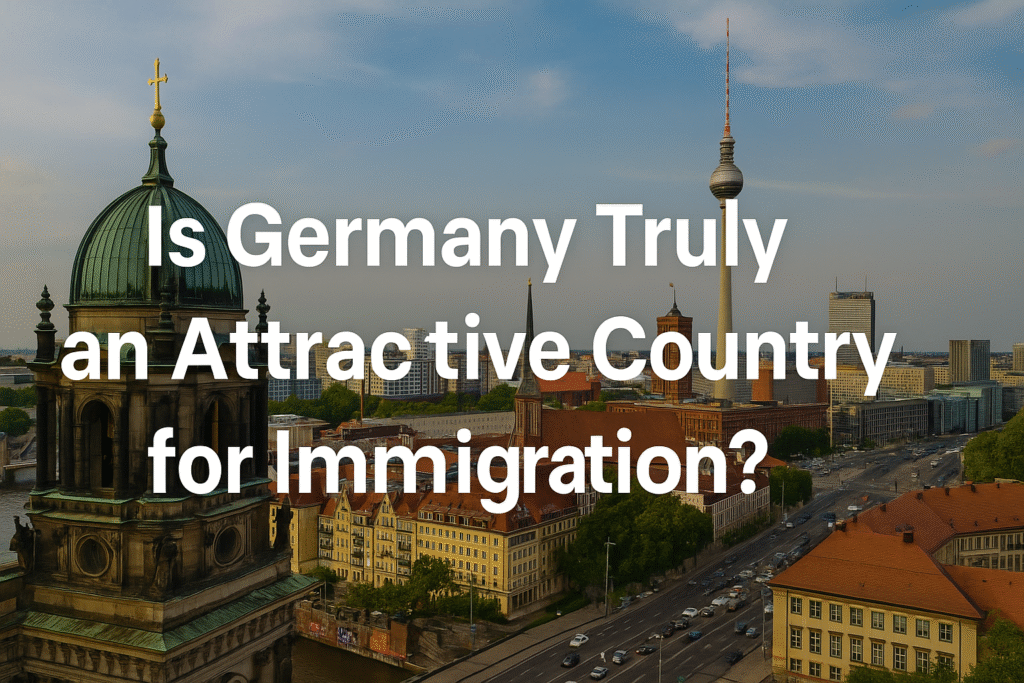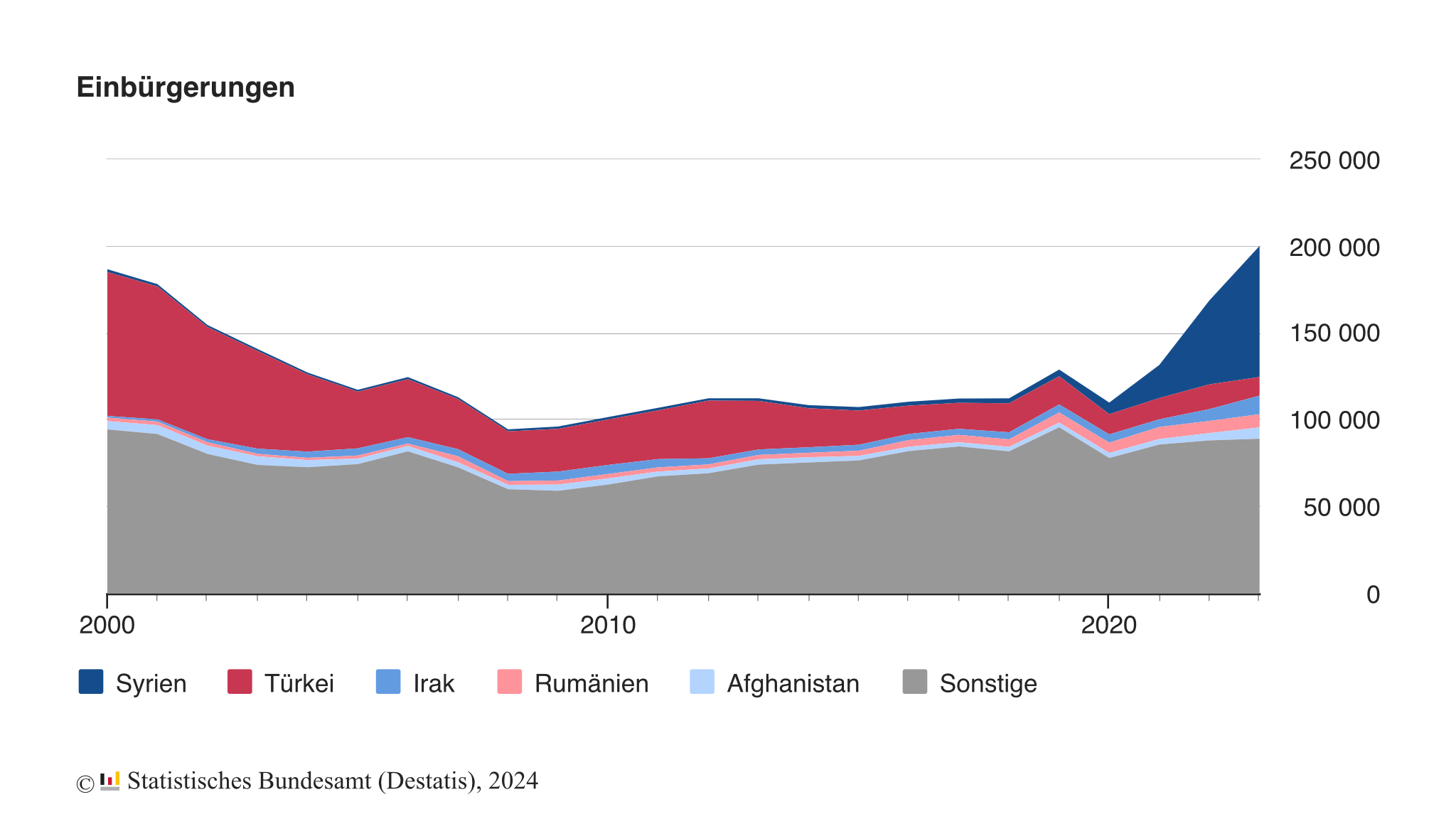
Why Are So Many People Moving to Germany?
Germany is actively seeking skilled professionals from abroad — and it’s not just policy talk. From bustling cities like Berlin and Frankfurt to cultural hubs like Dresden, thousands of internationals are choosing Germany to build their lives. But what makes Germany so appealing?
For many, it’s not just about job opportunities — it’s about a holistic lifestyle upgrade. A Polish project manager in Berlin calls it “safe, structured, and full of possibilities.” A Brazilian developer appreciates Germany’s cultural scene and secure social systems, while a South American artist highlights the abundance of opportunities and personal freedom — especially in fields like classical music and education.
From software engineers to musicians and data scientists, people from across the globe are turning to Germany for its quality of life, thriving job market, and international-friendly environment.
What Kind of Lives Are Immigrants Building in Germany?
The answer? Diverse and deeply rooted.
Whether it’s a Cybersicherheit (cybersecurity) student at HTW Berlin, a French exchange student in mathematics, or a Ukrainian software developer working in real estate tech — everyone’s path looks different, but the common thread is growth. Some are already pursuing naturalization; one participant even shared how she registered for the Einbürgerungstest (naturalization test) this week!
There’s a mix of aspirations too — some want to stay long-term for love, work, or culture. Others are still exploring. But the tone is overwhelmingly hopeful: “I want to build my life here.”
What Makes Germany an Attractive Immigration Destination?
1. Job Market & Economic Stability:
Germany’s demand for qualified professionals — especially in IT, engineering, and healthcare — is driving active recruitment. Startups, multinational firms, and public sector jobs offer reliable employment and growth.
2. Public Infrastructure & Safety:
The public transport system is modern and well-connected. Multiple expats highlighted how easy and affordable it is to travel — both within Germany and across Europe.
3. Social Security & Health Care:
Several respondents praised Germany’s healthcare system and strong workers’ rights. “Every company is legally obligated to protect employee rights,” said one participant, clearly valuing the labor protections Germany enforces.
4. Freedom & Equality:
Germany’s support for human rights, especially for LGBTQ+ individuals, was repeatedly mentioned. A young immigrant noted that the country’s values aligned with theirs — making it not just a safe place, but a right place to live.
5. Culture & Quality of Life:
From bike paths to museums, and from Oktoberfest to open-air concerts, Germany offers a rich and balanced life. One participant summed it up: “The quality of life here is so much better than in South America or other countries I’ve lived in.”
But What Holds Germany Back from Being Even More Welcoming?
Despite its many strengths, Germany isn’t without challenges — and the expats didn’t hold back.
1. Bureaucracy Is Still a Major Hurdle:
From visa processes to registering at different offices, newcomers often find themselves lost in the maze of paperwork. “The bureaucracy scares people before they even get here,” shared one software engineer.
2. Digital Infrastructure Needs Work:
Slow internet in U-Bahn trains, poor mobile connectivity, and outdated digital services were a recurring frustration — even causing one person to miss showing a valid Deutschlandticket and get fined €60.
3. Healthcare Access Is Unequal:
Especially in cities like Frankfurt, expats reported that finding a Hausarzt (family doctor) was a struggle due to overbooked clinics — forcing them to travel hours for basic care.
4. Housing Crisis in Cities:
Berlin came up frequently in housing complaints. Rent is high, competition is fierce, and finding an affordable apartment feels like a full-time job. “It’s so difficult to find a flat — especially if you’re new or foreign,” said one interviewee.
5. Social Isolation & Cultural Distance:
Several noted that while Germans are kind, they can seem distant at first. For those coming from socially vibrant cultures, this can make it harder to feel at home. “People don’t start random conversations here,” joked one participant.
What Can Germany Do Better for Immigrants?
To become a truly world-class destination for skilled immigrants, Germany must:
- Streamline Bureaucracy: Make visa and integration processes faster and more transparent.
- Digitize Public Services: From faster internet to better mobile apps for government services.
- Support Newcomers Socially: Community meetups, language exchanges, and integration programs can bridge the cultural gap.
- Improve Urban Housing Access: Expand affordable housing, especially in major cities.
Final Thoughts: Should You Move to Germany?
Germany isn’t perfect — but it’s evolving. For expats and internationals, the country offers a compelling mix of professional opportunities, lifestyle quality, and social security. And while bureaucracy and integration still have room for improvement, the benefits outweigh the setbacks for most.
If you’re looking to study, work, or build a life in Germany, you’re not alone — and you’re not on your own. At EtaiNFI, we help students, professionals, and families navigate life in Germany with confidence.
💬 Ready to explore Germany for yourself? Whether it’s visa guidance, learning German, or finding the right university or job — we are here.


